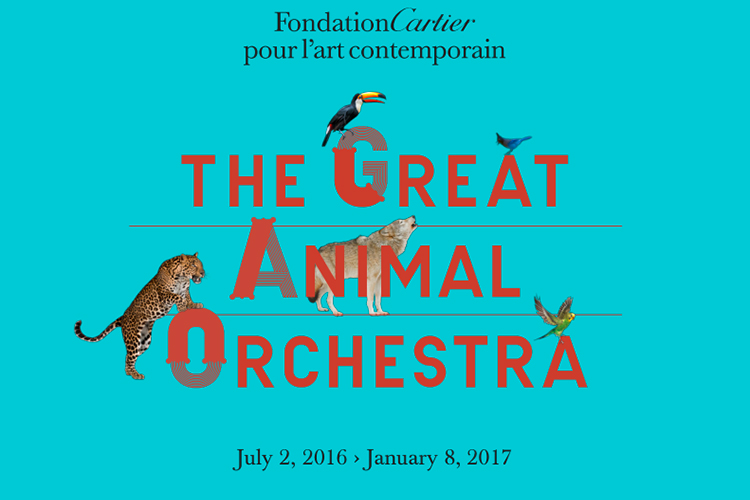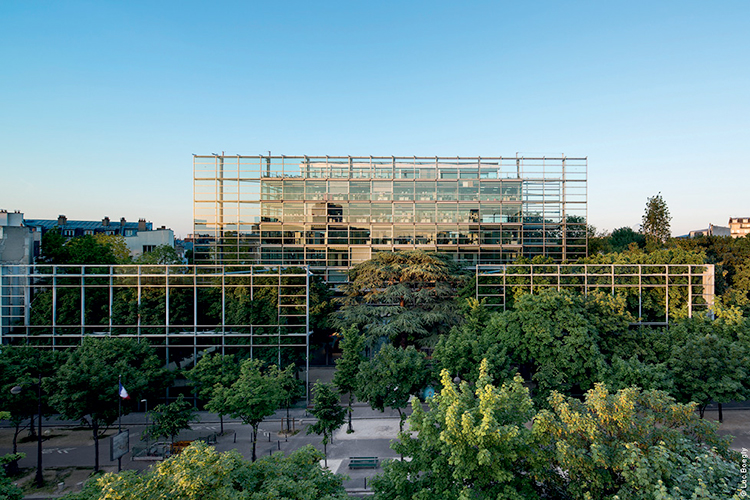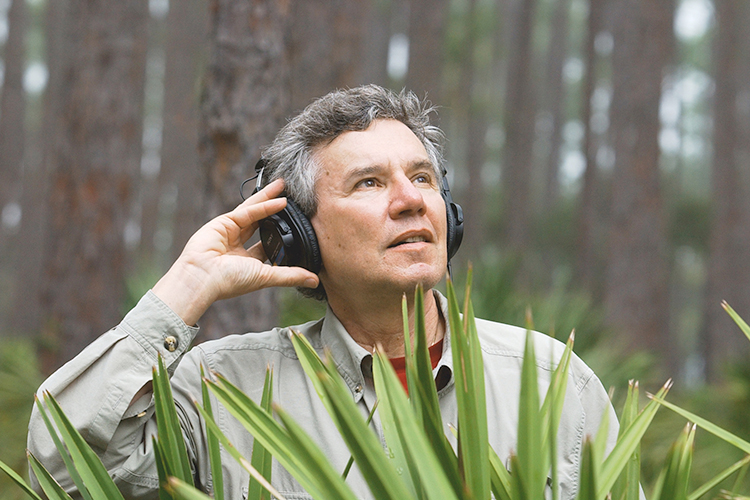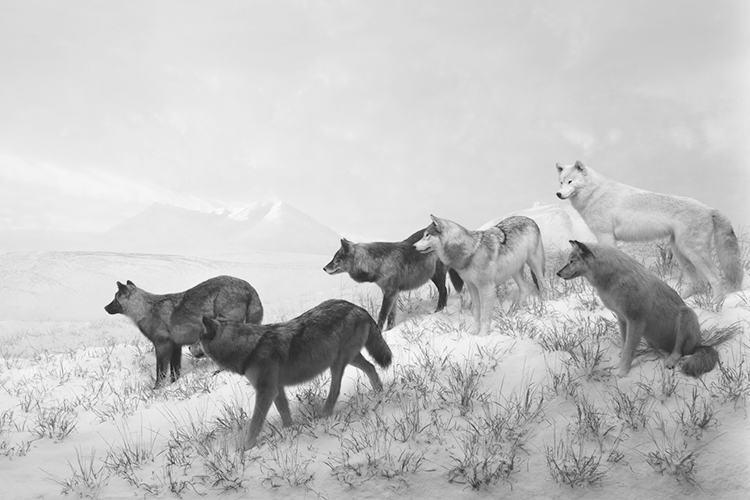 Poster of the Fondation Cartier exhibition ‘The Great Animal Orchestra’
Poster of the Fondation Cartier exhibition ‘The Great Animal Orchestra’ Building of the Fondation Cartier
Building of the Fondation Cartier
The incredible thing about Krause’s work is that he has pursued an analysis of the animal language from three different perspectives such as art, music and science. And he has done from the wildest and most remote areas of the human world, whose frantic activity mutes the beautiful sounds of nature.
The exhibition’s title of the Fondation Cartier, The Great Animal Orchestra, has to do with the perception of sounds that Bernie Kraus studies as a comparison to those issued by an orchestra. As he explains: “Every resident species acquires its own preferred sonic bandwidth -to blend or contrast- much in the way that violins, woodwinds, trumpets and percussion instruments stake out acoustic territory in an orchestral arrangement”.
In order to illustrate the work of Krause, the English collective United Visual Artists (UVA) has made an electronic installation in three dimensions, specially designed for this exhibition. This graphical representation of the biophony transforms the recordings in light particles, showing the complexity of animal vocalizations and helping us to better understand the sound language of natural environments around us.
 Bernie Krause is musician, scientist and bio-acoustic creator
Bernie Krause is musician, scientist and bio-acoustic creator
 Hiroshi Sugimoto, ‘Alaskan Wolves’, 1994. Image of ‘The Great Animal Orchestra’ exhibition
Hiroshi Sugimoto, ‘Alaskan Wolves’, 1994. Image of ‘The Great Animal Orchestra’ exhibition
The exhibition has been defined as an “auditory and visual aesthetic meditation about the animal kingdom” and besides the Krause’s recordings (available on Deezer) brings together the works of a variety of artists from around the world. Among the windows of the Fondation Cartier, located at 261 Boulevard Raspail in Paris, Mexican architects Gabriela Carrillo and Mauricio Rocha have created a set that replicates that of a symphony orchestra, where the different images of the animal world are exposed.
Noteworthy is the drawing of 18 meters in length specifically created by Cai Guo-Qiang for the exhibition. The Chinese artist has performed this work with gunpowder, getting with his peculiar technique recreate a landscape of wild animals gathered around a waterhole. His drawings are traces of burns marks and smoke remaining after turning black gunpowder on paper, which requires great skill and experience.
 Cai Guo-Qiang, ‘White Tone’ (detail), 2016. Created with gunpowder on paper
Cai Guo-Qiang, ‘White Tone’ (detail), 2016. Created with gunpowder on paper
 JP Mika, ‘Les Bruits de la nature’ (detail), 2012
JP Mika, ‘Les Bruits de la nature’ (detail), 2012
 Christian Sardet et Les Macronautes, ‘Méduse Oceania armata’, 2012
Christian Sardet et Les Macronautes, ‘Méduse Oceania armata’, 2012
Very different but no less spectacular is the work of Japanese artist Manabu Miyazaki, who exhibits beautiful photographs of wild animals taken with a robotic camera trap. This makes the images show an extreme sensitivity and a very particular point of view. “My camera traps are like trees observing the animals. The watchful eye of the tree becomes my camera”, says Miyazaki.
More colorful and eccentric is the work of Brazilian Adriana Varejão, whose ceramic mural with painted birds from the Amazon connects the garden of the building with exhibition spaces. Or the works of Congolese Pierre Bodo, JP Mika and Moke, whose colorful and popular painting, naturalist and something fantastic, has a very particular style.
 Manabu Miyazaki Jay, ‘Nagano’ (Japan), 2015
Manabu Miyazaki Jay, ‘Nagano’ (Japan), 2015
 Adriana Varejão, ‘Passarinhos’, 2012
Adriana Varejão, ‘Passarinhos’, 2012
 Moke, ‘L’Orchestre dans la forêt’, 1999
Moke, ‘L’Orchestre dans la forêt’, 1999
Other recognized artists with works presented in The Great Animal Orchestra are: Ryūichi Sakamoto, Christian Sardet, Hiroshi Sugimoto, Shiro Takatani, Cyprien Tokoudagba, Agnès Varda, The Cornell Lab of Ornithology and the duo Raymond Depardon and Claudine Nougaret, authors of the film about Bernie Krause played during the show.
The choice of this subject by the Fondation Cartier demonstrates, once again, the trend and the growing commitment to the animal kingdom in contemporary art. And the French haute jewelry brand is quite a standard bearer of this great union.



